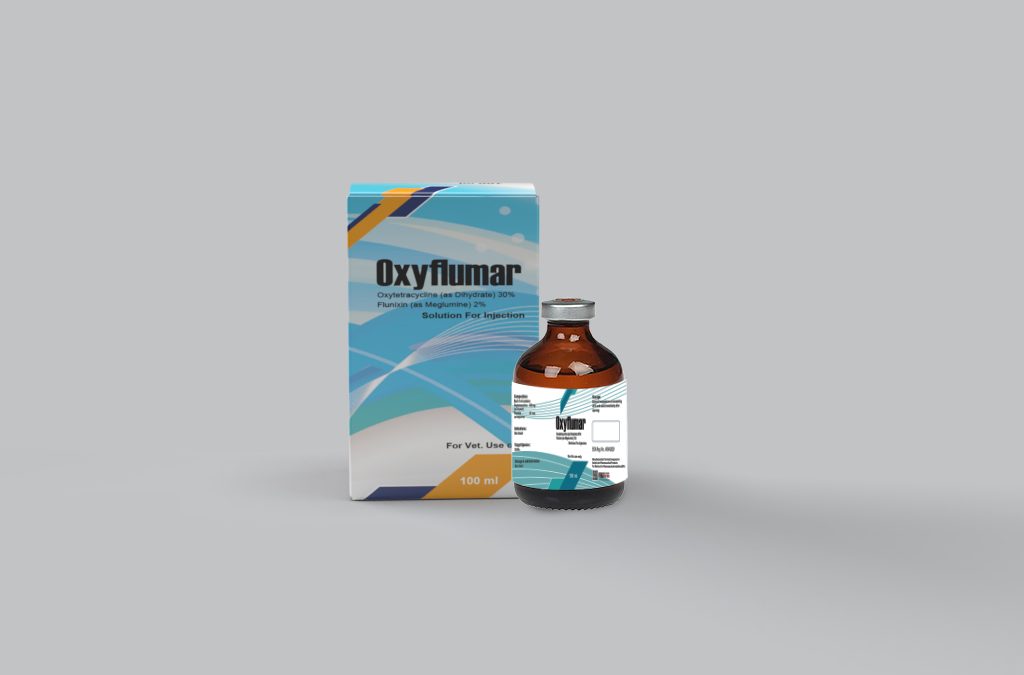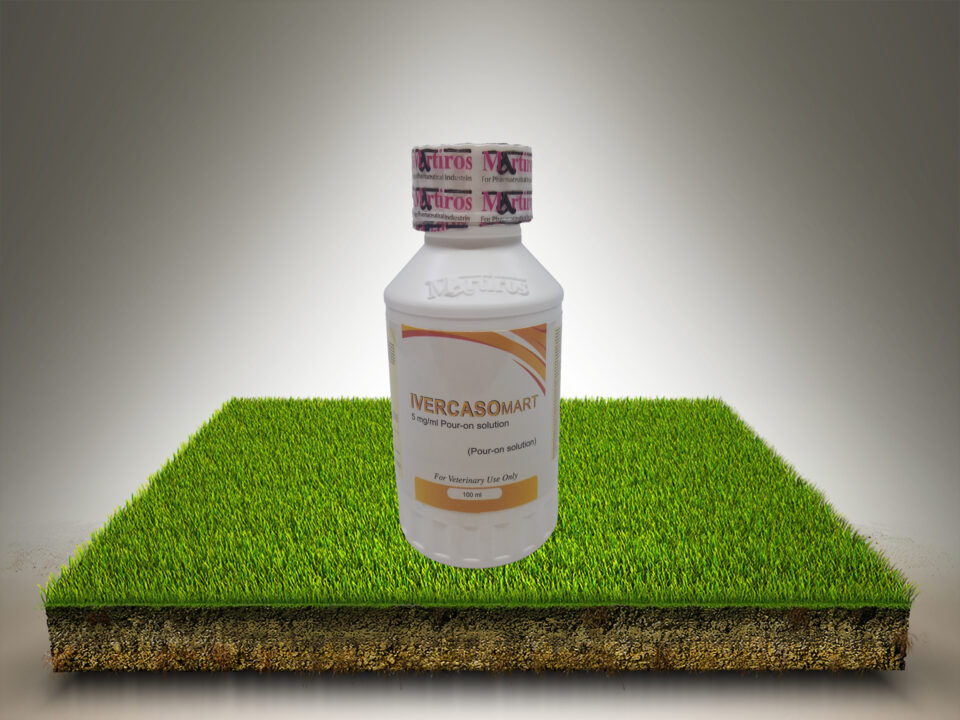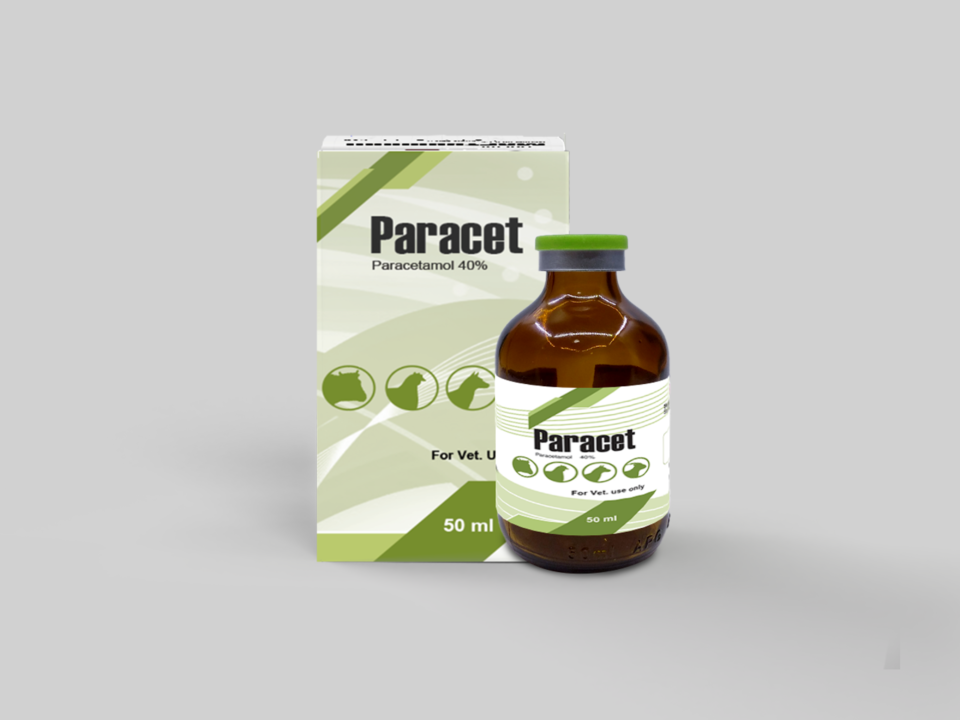
Neoxymart Forte

Reptomar
Solution For Injection
For Veterinary Use Only
Composition :
Each ml contains
Oxytetracycline ( as Dihydrate ) 300 mg
Flunixin ( as Flunixin Meglumine ) 20 mg
Properties:
The tetracyclines are a family of broad-spectrum bacteriostatic antibiotics which inhibit protein synthesis in susceptible microorganisms. A wide range of organisms are known to be sensitive in vitro to oxytetracycline, including Pasteurella spp, Arcanobacterium pyogenes, Staphylococcus aureus and certain mycoplasmas.
After oxytetracycline diffuses through the outer bacterial cell membrane, an active carrier mediated process transports the drugs through the inner cytoplasmic membrane. Inside the cell, oxytetracycline binds irreversibly to receptors on the 30S sub-unit of the bacterial ribosome where it interferes with the binding of the aminoacyl-transfer RNA to the acceptor site on the messenger RNA ribosome complex. This effectively prevents the addition of amino acids to the elongating peptide chain, inhibiting protein synthesis.
Flunixin meglumine is a relatively potent non-narcotic, non-steroidal analgesic with anti-inflammatory, anti-endotoxic and anti-pyretic properties.
Flunixin meglumine acts as a reversible inhibitor of cyclo-oxygenase, an important enzyme in the arachidonic acid cascade pathway which is responsible for converting arachidonic acid to cyclic endoperoxides. Consequently, synthesis of eicosanoids, important mediators of the inflammatory process involved in central pyresis, pain perception and tissue inflammation, is inhibited. Through its effects on the arachidonic acid cascade, flunixin also inhibits the production of thromboxane, a potent platelet pro-aggregator and vasoconstrictor which is released during blood clotting. Flunixin exerts its antipyretic effect by inhibiting prostaglandin E2 synthesis in the hypothalamus. By inhibiting the arachidonic acid cascade pathway, flunixin also produces an anti-endotoxic effect by suppressing eicosanoid formation and therefore preventing their involvement in endotoxin associated disease states.
Indications:
Treatment of bovine respiratory disease Caused by Mannheimia haemolytica, Pasteurella spp, Arcanobacterium pyogenes, Staphylococcus aureus and certain mycoplasmas. where an anti inflammatory and anti-pyretic effect is required.
Target Species:
Cattle.
Route of Administration:
By intramuscular injection
Dosage for active ingredient:
Cattle : Oxytetracycline : 30 mg per kg by IM
Flunixin : 2 mg per kg by IM
Dose for whole product:
Cattle : 1 ml of product per 10 kg body weight.
Warnings:
- Avoid intra-arterial injection.
- Use in any animals less than 6 weeks of age or in aged animals may involve additional risk. If such use cannot be avoided,animals may require a reduced dosage and careful clinical management.
- It is preferable that prostaglandin inhibiting drugs are not administered to animals undergoing general anaesthesia until fully recovered.
Contra-indications
- Use is contraindicated in animals suffering from cardiac, hepatic or renal disease, where there is a possibility of gastrointestinal ulceration or bleeding or where there is hypersensitivity to the product.
- Avoid use in dehydrated, hypovolaemic or hypotensive animals as there is a potential risk of increased renal toxicity.
- Do not administer other NSAIDs concurrently, or within 24 hours of each other.
- Concurrent use of potentially nephrotoxic drugs should be avoided.
- Do not exceed the stated dose or duration of treatment.
Side effects:
The use of tetracyclines during the period of tooth and bone development, including late pregnancy, may lead to discolouration.
Withdrawal periods:
- Cattle may be slaughtered for human consumption only after 35 days from the last treatment.
- Not for use in cattle producing milk for human consumption.
Storage condition:
Store in dry dark and place at room temperature not exceeding to 30 o.
Packaging:
Vial of 50,100 and 250 ml.




